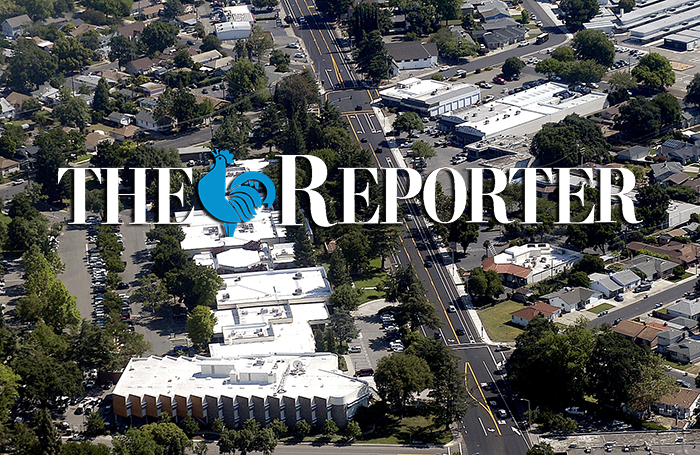
It’s a story that long ago wore out its novelty but is hanging around like a bad cold.
Still clinging to the notion, unsupported by any credible evidence, that the 2020 election was stolen, Ol’ 45 dominated the headlines once again last week with his fourth criminal indictment, taking the oxygen out of a roomful of potential Republican nominees for the U.S. presidency at next year’s GOP convention in Milwaukee.
All the trappings of processing a criminally charged defendant, the scheduling of trials, the no-surprise pretrial motions — and all the talking heads on TV basically rehashing the reporting and analysis of print journalists — will continue on the airwaves and internet in the coming days, weeks and months.
I once thought I’d never see any president other than Richard M. Nixon so unfit to be our nation’s chief executive and never expected what we’re almost certainly going to witness: Something way, way beyond Watergate. Watergate 2.0 … or 10?
However, there is an underlying story of greater consequence, and we should be paying attention.
That story is the test of our criminal justice system, the health of our democracy, and the rule of law, the latter a founding tenet of our nation.
In brief, the felony court cases are:
1) The bookkeeping fraud case (hush money paid to adult film actress Stormy Daniels to cover up a potential sex scandal, 34 felony counts in all) brought by Manhattan District Attorney Alvin L. Bragg, with a trial set for March 2024 in New York City. Judge Juan Merchan will preside in this state case.
2) The national security documents case (the former president is charged with 40 criminal counts of mishandling classified documents after leaving office and conspiring to hinder government efforts to retrieve them) in the Southern District of Florida, a federal case brought by Special Counsel Jack Smith, with a trial set for May 2024. Judge Aileen Cannon will preside.
3) The 2020 election subversion case (the former president is charged with four criminal counts related to allegations that he sought to overturn President Joe Biden’s victory, including two counts related to obstructing an official proceeding, the Jan. 6, 2021, joint session of Congress) in Washington, D.C., brought by Special Counsel Jack Smith, with a trial date to be determined. Judge Tanya S. Chutkan will preside.
4) 2020 election subversion in Georgia (the former president is charged with 13 criminal counts related to allegations he illegally sought to subvert his narrow loss to President Biden in Georgia, including accusations of racketeering, solicitation of a public official to violate their oath of office, filing a false document, and more) in Atlanta. The case was brought by Fulton County District Attorney Fani T. Willis. A trial date has not been set, but Judge Scott McAfee will preside in the state case, which also involves charges against 18 of Ol’ 45’s associates, many of them lawyers.
The indictments have raised — and will continue to raise — a public uproar in some corners of our tattered body politic. And that tumult is exacerbated, particularly in the federal cases and Georgia case, by the former president himself, who has no one to blame but himself for bringing the U.S. legal system down on his shoulders.
Consider that last week, in the 2020 federal election subversion case, Judge Chutkan admonished Ol’ 45 against violating the terms and conditions of his release set forth during his arraignment. Those cautions included making “inflammatory statements” that could be regarded as intimidating witnesses or others involved in the case. Did he comply? Of course not. He decided to test the judge by posting on his social media website, Truth Social, writing, “She obviously wants me behind bars. VERY BIASED & UNFAIR.” (And Thursday news reports indicated Judge Chutkan had already received a death threat from a Texas woman who also used a racist term for the federal magistrate.)
While our criminal justice system will be challenged as these cases go forward, I have faith in the jury trial process: That jurors, no matter where each case is heard, will be willing to listen closely to testimony, keep an open mind, evaluate the evidence and apply the law, as instructed by the various judges.
My faith is underscored by my experience covering criminal cases in Solano County Superior Court, where the jury selection process, as in any U.S. jurisdiction, is thorough, deliberate and fair to the prosecution and defense. And the judges I’ve seen and heard in various courtrooms in Fairfield and Vallejo always instruct the jury that because a defendant is seated at the defense table does not mean he or she has actually committed the crimes for which they are charged and that any guilty verdict in a criminal case must be reached unanimously, “beyond a reasonable doubt,” and that the burden of proof is on the prosecution to prove its case.
In order for our nation to be “the shining city on a hill,” as some GOP presidential hopefuls have said in the past, we must meet this challenge to the justice and political systems that have served us well since our founders devised them nearly 250 years ago. I believe we can.
— Richard Bammer is a Reporter staff writer.
This post was originally published on this site be sure to check out more of their content.






